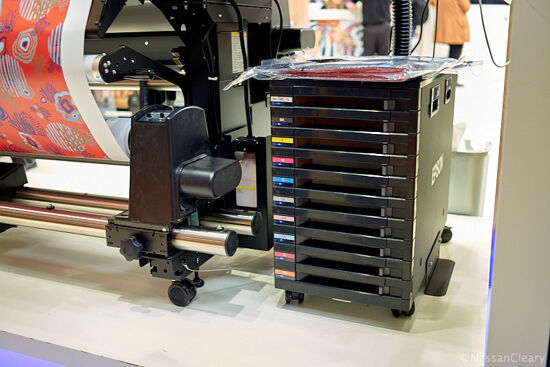How to tackle polyester pollution with Matter Industries and Paradise Textiles

In this podcast Debbie McKeegan speaks to Adam Root, founder of Matter Industries and his innovation Regen™, a capture technology to remove microfibres from the textile manufacturing process for the benefit of human and environmental health. We also meet Lewis Shuler of Paradise Textiles who are collaborating on research and the application of Matter’s technology for textile manufacturing.
The retrofittable technology reduces microfibre emissions and operating costs for textile factories, offering a scalable solution for the industry. Backed by Regeneration.VC - the Leonardo DiCaprio supported climate tech fund – with the announcement made at its Annual Meeting during New York Climate Week. The first installation is planned at Paradise Textiles’ sustainable textile facility in Egypt by Q4 2025.
To discover the latest content that covers a wide range of sectors including sustainability and textile printing sign up for FESPA’s free monthly newsletter FESPA World available in English, Spanish and German.
Topics
Recent news

How is the textile industry committed to becoming more sustainable
Debbie McKeegan discusses how the textile industry has experienced various challenges and has successfully demonstrated resilience, innovation and an unwavering commitment to sustainability.

Ukranian printing company invests in Flexcel NX Wide
Ukrpol, a Ukranian printing house that focuses on commercial printing and packaging production has a wide array of customers that are in the food, cosmetics and medical sectors. The company recently bought a Miraclon Flexcel NX Wide 4260 flexographic platemaking system. This purchase will help the company attract customers who acknowledge the value of modern flexo for packaging production.

How reducing waste can lower costs and improve profitability for your business
Nessan Cleary explains how businesses can increase their profit by being more sustainable by reducing energy consumption, improving recycling and most importantly motivating staff to implement these new policies.

What questions should you ask new sustainability stakeholders?
Steve Lister discusses upcoming sustainability stakeholders for 2024 and discover vital questions to ask them. In a shifting landscape, proactive engagement is key. Learn how to align with new partners' goals and navigate evolving expectations, ensuring your organization stays at the forefront of environmental and social responsibility.